Personalizing Recovery:
Could This Approach Help Young Ugandans Out of Alcohol & Drugs?
Written by: Hellen Kabahukya. Film & Photography by: Richard Mugambe.
Written by: Hellen Kabahukya. Film & Photography by: Richard Mugambe.
As a child born into a middle-class family in Uganda’s capital Kampala, Martin Rugaju recalls a quite cheery upbringing and lifestyle.
However, the liberty of ‘free choice’ typical of most affluent homes would eventually lead him down a destructive lane, he collects.
Now 45, he recalls having his first taste of whiskey at the age of three at home.
“During my high school years, alcohol became a way for me to connect with friends … the freedom of being at school allowed me to drink without any restrictions,” he said.
He would then spend more than 24 years struggling with the “hook”, despite several attempts at personal, and family levels to quit.
As his situation worsened, his family thought a University education in Algeria, an Islamic country with strict laws on alcohol use would do. It was a false hope.
While there, he sought solace in drugs that sank him deeper.
“I failed to finish my course in time due to procrastination, a side effect of using cannabis. Back home, I tried to quit to no avail. I was using herbal solutions and exercising but after a year I relapsed,” he explains.
This is one of the so many faces of alcohol and drug abuse disorders among Uganda’s young adults. This long and cross-cutting thread is being felt in schools and other contemporary centers.
The response is yet to be defined.
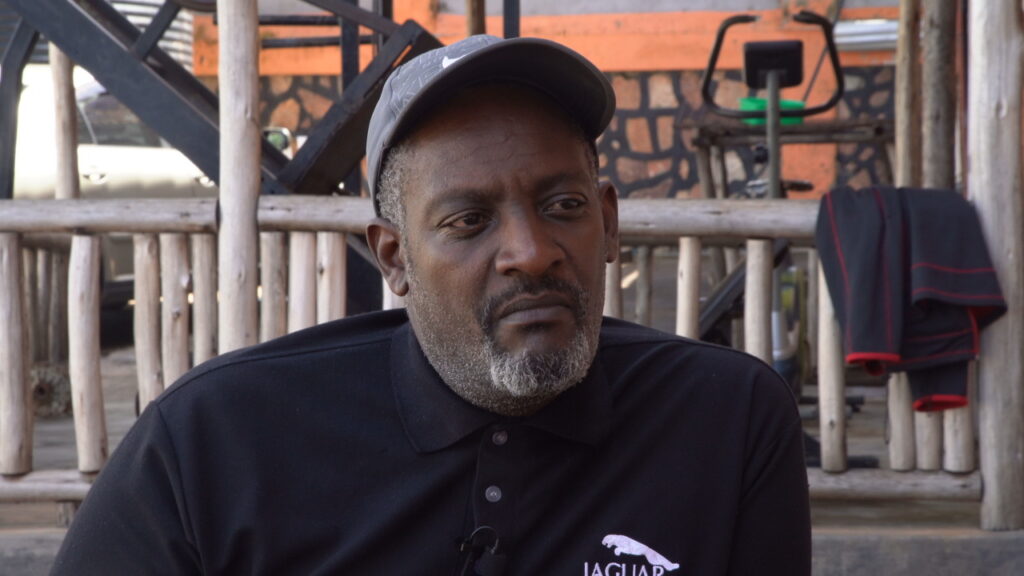
Martin Rugaju speaks to Solutions Now Africa During an Interview at FORE. He is now part of the team accelerating recovery for young people struggling with drugs and alcohol. Photo by RICHARD MUGAMBE.
A 2021 report by Makerere University School of Psychology notes that schools and higher institutions of learning are seeing a surge in drug abuse cases among students.
It cites Marijuana, cocaine, heroin, cigarettes, and alcohol as the most abused drugs and substances by school-going children, especially in elite schools which accommodate children from well-to-do families.
Last year, police arrested four people suspected of supplying drug-laced snacks to school children.
Traffickers are said to be targeting elite schools because of the purchasing power of children. These would later spend their adulthood struggling through addiction.
Uganda faces a significant challenge with substance abuse. Alcohol consumption rates in Uganda are estimated 9.5 litres per person over 15 years of age, surpassing the global average.
Research suggests that approximately 9.8% of adults in Uganda have an alcohol-use disorder.
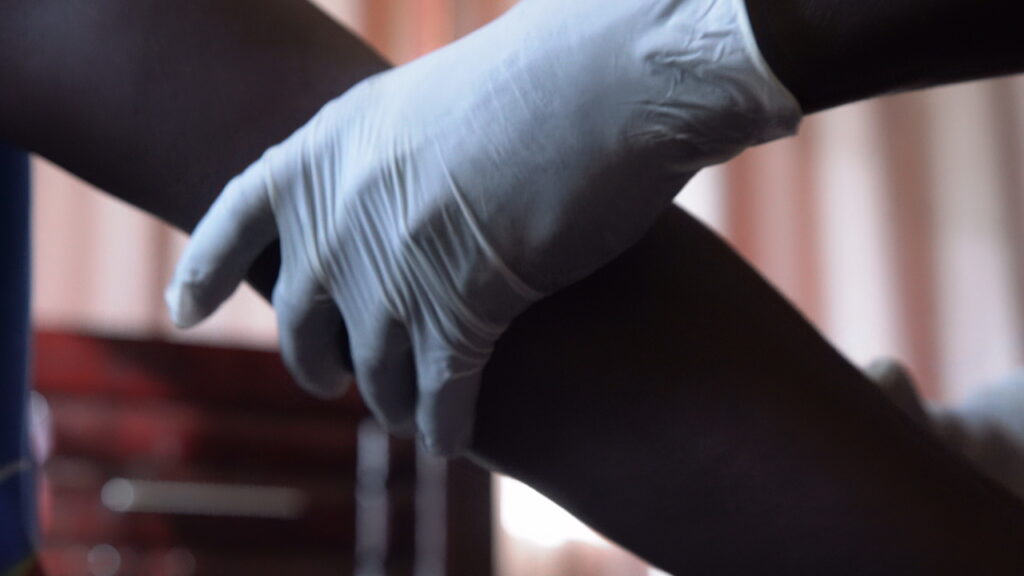
A recovering patient receives an injection to stabilize his withdraw symptoms at FORE Tranquil home in Kajjansi outside Kampala. Photo by RICHARD MUGAMBE)
According to Dr. Brian Mutamba, a psychiatrist at the country’s only mental referral hospital, Butabiika Hospital, a combination of social and psychological factors is pushing Ugandans to substance abuse, and it’s becoming difficult to treat.
“Addiction is a relentless psychological struggle that escalates gradually, trapping individuals in a cycle of abuse even when they genuinely yearn for freedom,” he elaborates.
Despite efforts by the government and other civil society organizations, Uganda still faces challenges in combating substance abuse effectively.
There is a shortage of services and treatment programs, and the existing ones often lack appropriate attention to different developmental and child protection needs.
Even where treatment is available, misinformation and social stigma works against the effectiveness of some of the programs.
Rugaju for example, it is his partner that would have the courage to face the challenge that saw him give recovery another chance.
“It was my wife who had the courage to share my struggles with our relatives, hoping they would understand. I was furious, trapped in denial, and stubbornly believed I had everything under control. Little did I know that their concern and push for help would become the turning point in my recovery journey,” Rugaju narrates his ordeal.
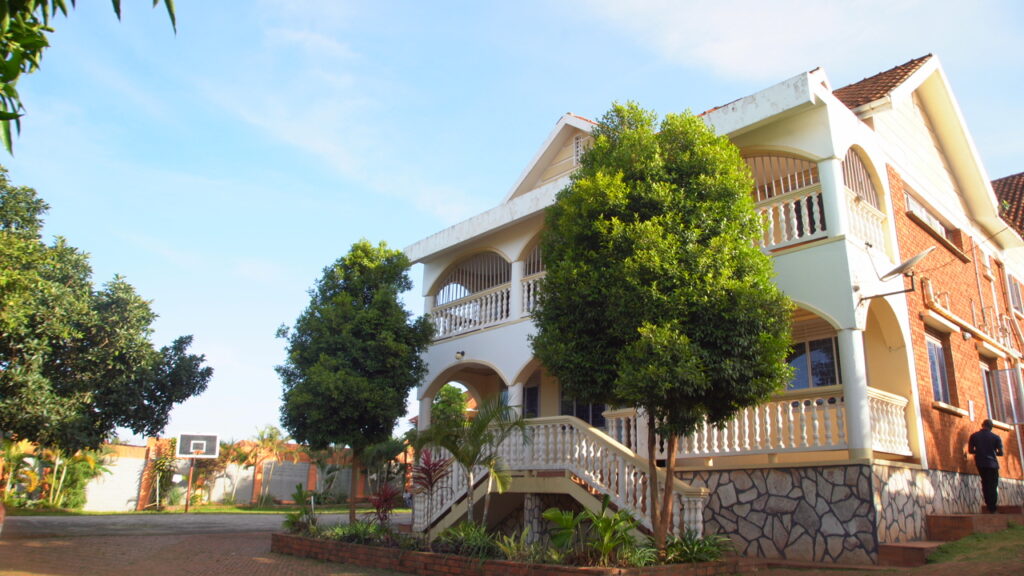
He sought assistance and support from Focus on Recovery (FORE) Tranquil Homes, a rehabilitation center built for recovering addicts by recovering addicts.
FORE gained popularity in Uganda when together with other civil society organizations pushed the government to ban the packaging of cheap alcohol in sachets.
The organization is managed by Albert Elwa, whose life-story is not any different from Rugaju’s. After close to three decades of battling alcohol abuse disorders, Elwa decided to mobilize other recovering addicts to design more relatable approaches to recovery.
“I oftentimes would be taken to private rehabilitation. However, as soon as I went back home, I would relapse,” he explains adding that recovery models in most rehabilitation centers are ineffective because they are not patient-centered and recoveries are more of treatment recipients than active participants.
Since 2015, the organization has seen the establishment of two tranquil homes in Kajjansi and Bwebajja outside Kampala. The centers are funded and run by recoveries and charge a subsidized for patients.
Its programs are designed on three pillars, including; therapy, family and co-dependence, and the post-treatment care.
According to Elwa, this approach aims at “providing comprehensive assistance, support, and empowerment to individuals on the journey of recovery as opposed to simply treating”.
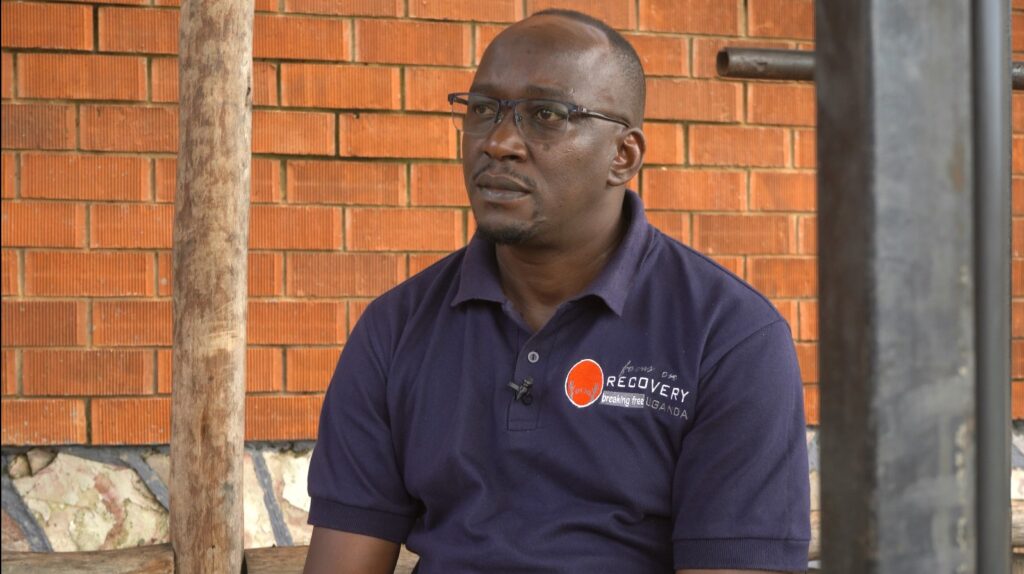
At the homes, the organization’s commitment to recovery is evident in the personalized care and therapy tailored to each patient. General care encompasses counseling, detoxification, and various other evidence-based therapies.
The facility understands that addiction is a multi-faceted issue, often accompanied by underlying mental health conditions, family dynamics, and denial.
“Upon admission, we conduct a comprehensive assessment on the patient to understand their unique needs. This allows us to develop a personalized treatment plan tailored to their specific requirements,” says Trina Headwig Turinaitswe, the administrator.
During the sessions, family members are integral components of FORE Uganda’s approach. Every patient has a dedicated session which includes family members and is part of the process from initiation.
The organization says the approach relies on family codependency, and penetrating family structures helps to create a supportive network for long-term recovery.
“Our focus extends beyond the individual seeking treatment. By addressing and healing the family dynamics, we can strengthen relationships, foster understanding, and provide a solid foundation for long-term recovery,” Turinaitswe explains.
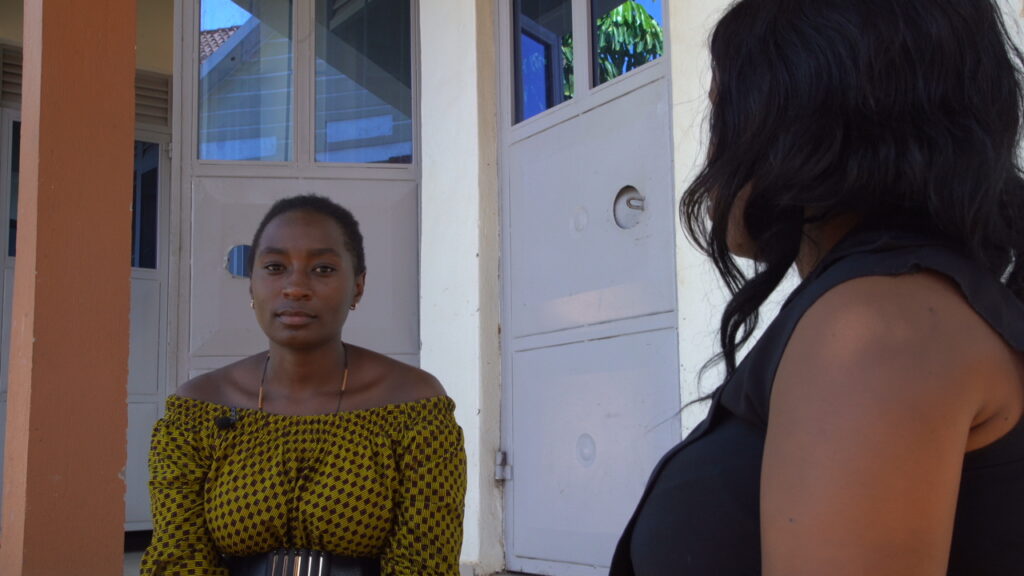
Trina Headwig Turinaitswe, the administrator at Focus on Recovery Uganda explains the unique value of their model during an interview with Solutions Now Africa. PHOTO by Richard Mugamba
Another component of therapy at the Tranquil homes is the cognitive-behavioral therapy, peer-to-peer talks, motivational interviewing, and trauma-informed care. These help patients develop coping strategies, improve self-awareness, and work toward sustainable recovery.
“We believe in leveraging our own experiences to provide empathetic and relatable support to those seeking help. By fostering an environment of trust and understanding, we empower individuals on their path to recovery,” Elwa says.
Once the residential program ends, patients are provided with individualized aftercare plans, including outpatient counseling.
The support aims to strengthen individuals’ commitment to sobriety, promote personal growth, and mitigate the risk of relapse.
Stories like that of Rugaju are a testament to the effectiveness of the rehab’s comprehensive approach. By addressing the diverse needs of individuals struggling with addiction, including counseling, detoxification, family dynamics, denial, security, and underlying conditions, the facility empowers patients to embark on a transformative journey of recovery.
Rugaju makes frequent returns at the facility to give a hand to other recoveries.

While the rehab model system is an effective approach to addiction treatment, the low rate of individuals returning for aftercare once they complete the initial program pauses a challenge.
The organization has to invest in reaching out to its patients. Despite the importance of ongoing support and follow-up, some individuals struggle to maintain their commitment to long-term recovery.
Even with the best intentions, the risk of relapse remains a concern. Rehab programs equip individuals with coping mechanisms and relapse prevention strategies, but the transition back to unchanged environments can be triggering and challenging.
“The close connection between addiction and one’s environment underscores the risk of relapse upon returning to familiar surroundings. To combat the likelihood of relapse, comprehensive aftercare plans are crucial, offering ongoing support, therapy, and coping mechanisms.” Moses Mpanga a Psychiatrist.
© 2022 - Media Challenge Initiative | All Rights Reserved .
© 2022 - Media Challenge Initiative | All Rights Reserved .